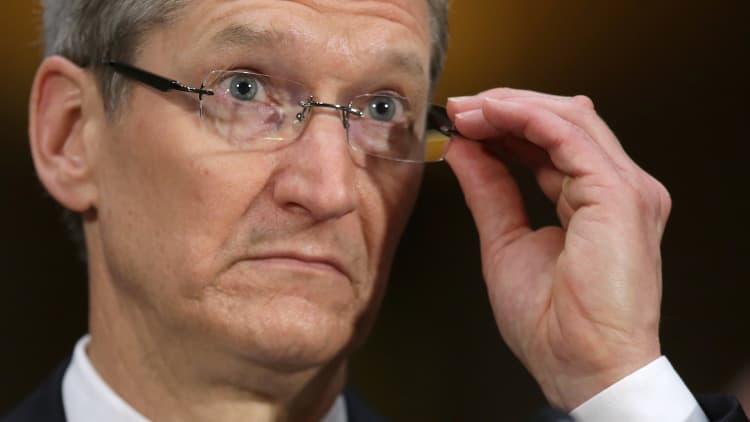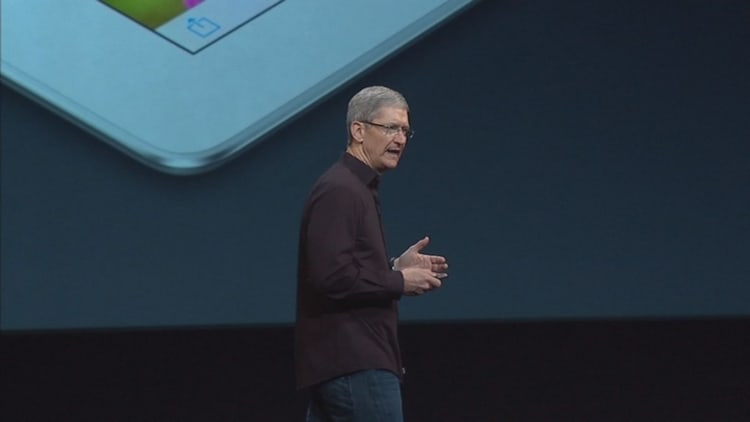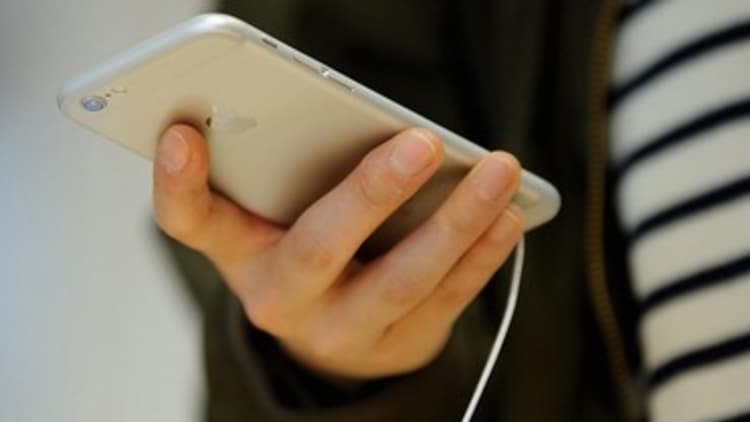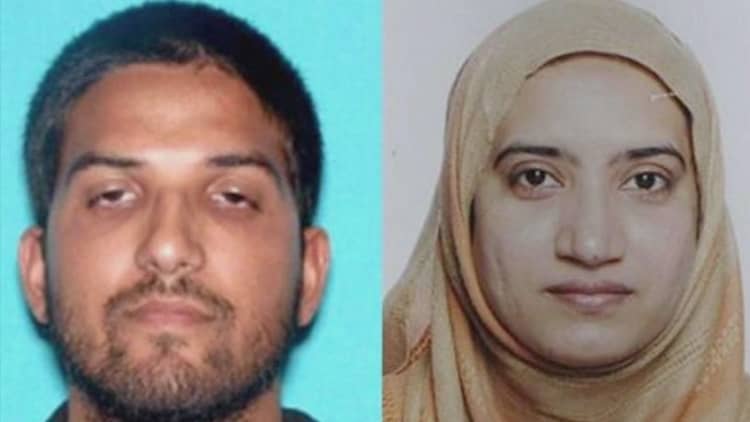



A U.S. magistrate's order that Apple help the FBI access an iPhone belonging to one of the San Bernardino terrorists is "chilling" and is essentially asking the U.S. tech giant to "hack" its own users, Chief Executive Tim Cook said.
In a letter to customers on Wednesday, Cook said he opposes a "dangerous" court order.
"The United States government has demanded that Apple take an unprecedented step which threatens the security of our customers. We oppose this order, which has implications far beyond the legal case at hand," Cook said.
"The implications of the government's demands are chilling. If the government can use the All Writs Act to make it easier to unlock your iPhone, it would have the power to reach into anyone's device to capture their data."
Cook said the government could "extend this breach of privacy" to demand that Apple build surveillance software to intercept messages, access health records or financial data, track location or access your phone's microphone or camera without your knowledge.
The CEO's comments were in response to a court order that Apple help the FBI break into the iPhone 5C used by San Bernardino shooter Syed Rizwan Farook. Federal Magistrate Judge Sheri Pym said that Apple must provide "reasonable technical assistance" to the FBI, which would require the U.S. technology firm to overhaul the system that disables the phone after 10 unsuccessful password attempts.
The case marks one of the highest-profile clashes in the debate over encryption. Law enforcement authorities say that encryption used by the likes of Apple makes it harder for them to solve cases and stop terrorist attacks. Technology firms have kicked back, saying that encryption is key to protecting user data from hackers, a point Cook reinforces in his letter.
Encryption on an iPhone means that only a passcode can be used to access the data such as pictures or messages. If someone enters a wrong passcode, the device will automatically erase all of the data. Not even Apple can access the lost data.
Cook said the FBI request means it is asking Apple to create software that does not actually exist and the company would not even be able to do so.
"Now the U.S. government has asked us for something we simply do not have, and something we consider too dangerous to create. They have asked us to build a backdoor to the iPhone," Cook said.
"Specifically, the FBI wants us to make a new version of the iPhone operating system, circumventing several important security features, and install it on an iPhone recovered during the investigation. In the wrong hands, this software — which does not exist today — would have the potential to unlock any iPhone in someone's physical possession."
In the wake of revelations in 2013 by former National Security Agency contractor Edward Snowden about the extent of U.S. spying, technology companies moved to bolster their security and introduced encryption by default onto their services and devices to reassure users that their data were safe from prying eyes.



